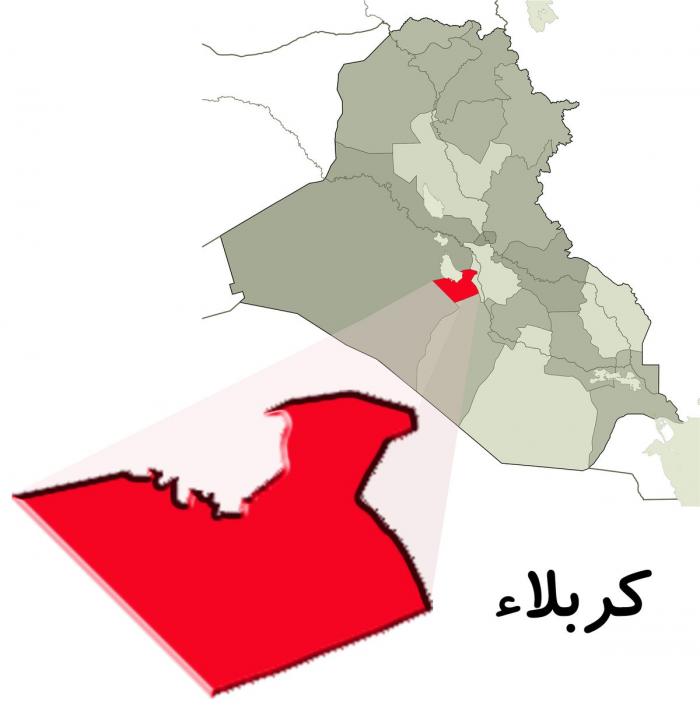The city of Karbala has been known by many names, which are believed to indicate the same spot as the narrators and linguists differed in the origin of the name of the holy city of Karbala. Some of them say it was Arabic origin and some others referred it to the Babylonian era. It is said that it was derived from the Arabic word (Kour Babil), which means a group of ancient villages that the most prominent of them was the wealthy village of (Nainawa) north-eastern of the city and is now a series of ancient hills known as the (Nineveh Hills).
Some of those names were (Al-Ghadhiriya), which is known today as the town of (Husseiniya), and the (Nawawis), which was a cemetery for Christians before the Islamic conquest, and other historian says that the origin of the name wasn’t Arabic, referring to the Persian word (Karbelah) which is made of the section (Kar) that means (Act) and the section (Belah) that means (Higher), so its ancient name was (The Higher Act) or by other meaning (The place of worship and prayer).
Some of the researchers believe in the Samaritan origin in the city's name as they return the name into the Assyrian word (Karb-ail) which divided into the section (Karb) that means (Shrine), and the section (Ail) that means (God), so the Assyrian name of the city was (The Shrine of God), arguing about the existence of a temple by this name that the city was named after it.
The famous historian (Yaqoot Al-Hamawi) has returned to the geographical origin of the name. He mentioned three aspects to the name, the first one was made by the word (Karbela) which means the softness of the feet during walking, the second aspect came from the word (Karbalat) that some thought to be about the ground of the city was made from gravel and sand as stories said that the purification process of the wheat from the sand grains was called (Karbalat), while the third aspect was related to what some historians said that it came from the word (Karbal), which is the name of the (Acidosis) plant that is abundant in the city, so it was named after it.
There is no doubt that each city has many names through its historical stages. History has mentioned that the city of Karbala was known before as (Ghadhiriya), (Ninewa), (Maria) and (Shat al-Furat), as well as (Al-Taif), (Mashhad Al-Hussein) and (Karbala). The last name was only one of those many names that referred to this holy city since ancient times but it has overcome the other names over time as it has included all parts of Karbala until the late sixties were it was changed to (The Brigade of Karbala).
However, all of these many names have a close or distant relationship with the famous name (Karbala), which has been associated with this place since the martyrdom of Imam Hussein (peace be upon him) on its soil to this day.
Sources:
1. The Dictionary Of Countries - Yaqoot Al-Hamawi
2. Taj al-Arous- Al-Zubaidi.
3. Karbala And The Holy Shrine Of Al-Hussein - Abdul Jawad Al-Kilidar.
4. The Noblemen's Destination In The History Of Karbala - Abdul Hussein Al-Kalidar.
5. Al-Hussein City- Mohammed Hassan Al-Kilidar.
6. The Heritage Of Karbala - Salman Hadi Al-To'ama.
7. Nahdhat Al-Hussein - Hebat Al-Din Al-Shahristani.
8. "Loghat al-Arab" Journal - Father Anastas Karamli.
9. The City Of Karbala: A Study In The Origins And Urban Development - Dr. Riadh Al Jumaili.
10. Karbala in the Ottoman archive - Dilak Faya.
11. Karbala's Comprehensive Cultural Encyclopedia – The Karbala Center for Studies and Research.
12. Statistical Data – The Iraqi Ministry of Planning.
13. The Supreme History Of Karbala - Abbas Al-Lahaf.

